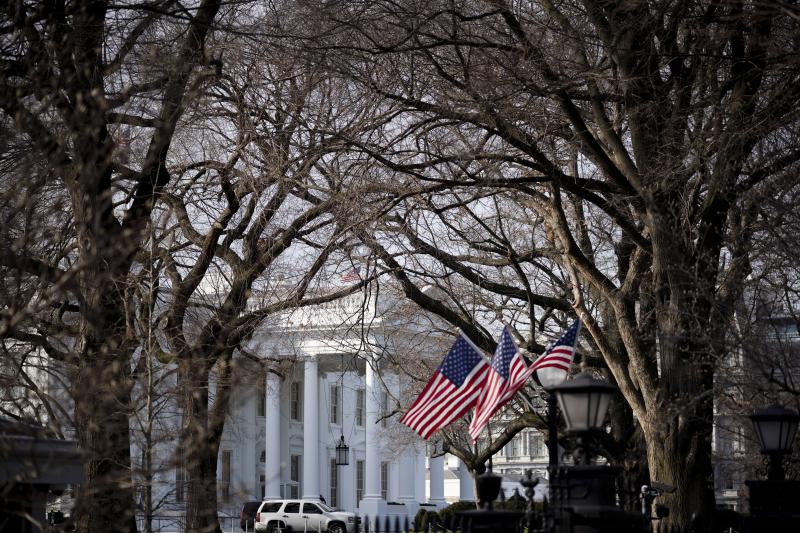
The year 2019 was perhaps the worst for regional and global security in the 30 years since the end of the Cold War. Thanks to its "America first" policy, the United States has added to the instability in the world order. The liberal world order, in fact, has deteriorated due to the US pulling out of several multilateral agreements and organizations, and most importantly, resorting to unilateralism to trigger the trade war.
Since 2018, the US has been resorting to unilateralism and trade protectionism. From mid-2018 to 2019, Washington raised tariffs on Chinese products six times, leading to 12 rounds of negotiations with Beijing, and added 130 Chinese companies and research organizations to the "Entity List" (which "identifies entities believed to be involved, in activities contrary" to the US' national security or foreign policy interests), in an attempt to curb China's technology cooperation and trade with other economies.
But fortunately, the signing of the phase one trade deal has eased the China-US confrontation on that front. So the two sides should grasp the opportunity provided by the deal to move forward in the right direction and inject confidence into the global economy.
By naming China as a rival, the US ordered a range of investigations against Chinese investment, imposed sanctions on Chinese academics and high-tech companies and even threatened to deny Huawei access to the markets of its allies and security partners. The escalating trade disputes between the two largest economies of the world over the past year and a half reflected a paradigm shift in China-US relations, prompting many to say the world may be witnessing the beginning of another Cold War.
As such, the signing of the phase one deal doesn't necessarily pave the way for smooth negotiations in the future, given that the two sides are expected to discuss much thornier issues to reach a phase two deal.
Besides trade, the "Indo-Pacific strategy" of the US is another factor that may hinder regional stability. East Asia has been peaceful and stable since the 1980s thanks to the regional economies' deepening economic cooperation. But by pressing ahead with its "Indo-Pacific 2.0" strategy on the pretext of safeguarding the US' national interests and security, the Pentagon has undermined multilateral economic mechanisms in the Asia-Pacific region as well as turned regional geopolitics upside down.
While China and ASEAN member states were working to finalize the Code of Conduct to resolve the South China Sea issues, the US tried to turn the region into a battlefield by violating China's maritime boundaries in the name of exercising "freedom of navigation".
Even US-Russia relations took a turn for the worse last year with the US withdrawing from the bilateral Intermediate-Range Nuclear Forces Treaty, which threatens to spark a nuclear arms race. Worse, Washington has built the Space Command in violation of the global consensus to not militarize outer space.
US-Iran relations have become more volatile after the White House ordered the assassination of Iranian general Qassem Soleimani in Baghdad on Jan 3, forcing Iran to all but abandon the 2015 nuclear deal, which in turn increased the risk of a military confrontation in the Persian Gulf and Iran developing nuclear weapons.
Moreover, the three meetings between the top leaders of the US and the Democratic People's Republic of Korea didn't bear any fruit as Washington refused to agree to any compromise formula with Pyongyang. To put it simply, the US refused to lift even part of its sanctions despite Pyongyang halting its nuclear program and focusing on economic development.
As a result, the DPRK has blamed the US for the deadlock in the bilateral talks and said it would shift its focus to military development to strengthen its national security. Forcing the DPRK to abandon its nuclear program without giving it any security guarantee and economic incentives will not lead to any solution. So the tensions on the Korea Peninsular are not likely to end.
These factors do not bode well for the world order in 2020. Hopefully, the US will realize, sooner than later, that global instability will not serve its interests, and refrain from pushing forward its selfish and divisive trade and political agenda. The international community desperately wants to return to the liberal world order and expects the main players to sincerely follow international rules and uphold global institutions to work together to improve global governance.
The author is the executive director of the Collaborative Innovation Center of South China Sea Studies and dean of the Institute of International Relations of Nanjing University. The views don't necessarily represent those of China Daily.













